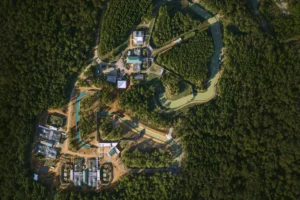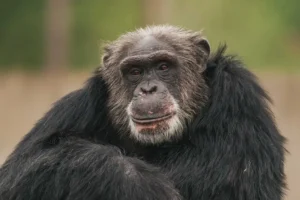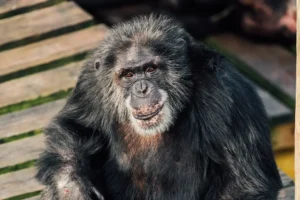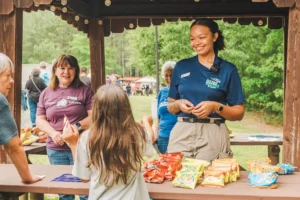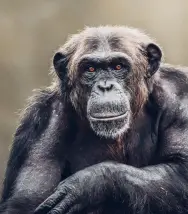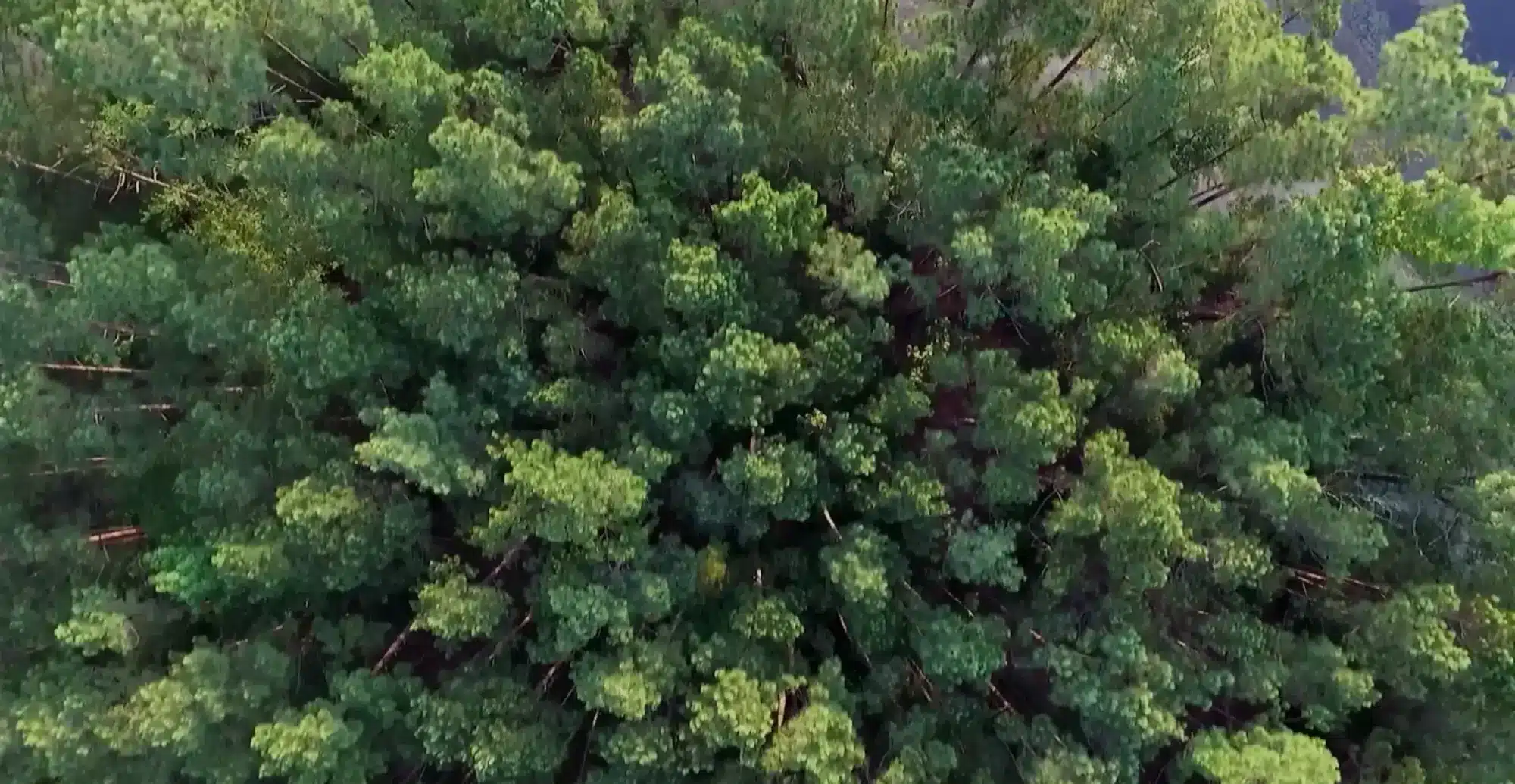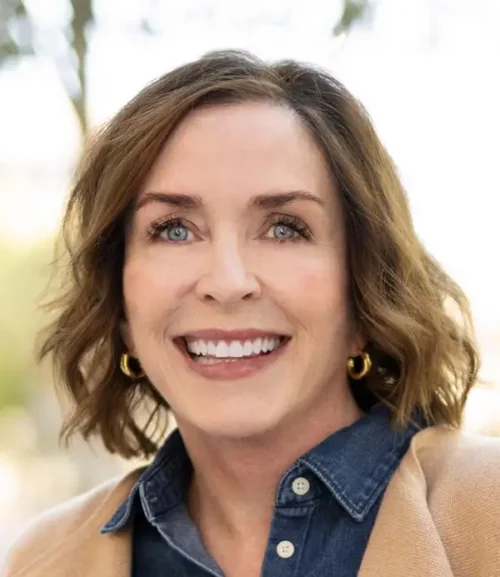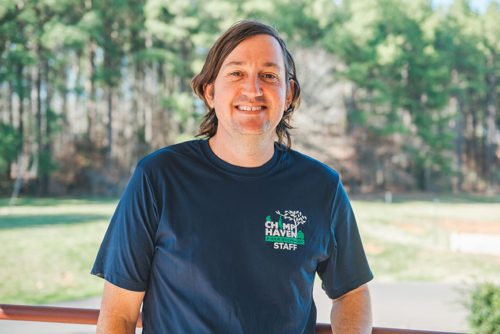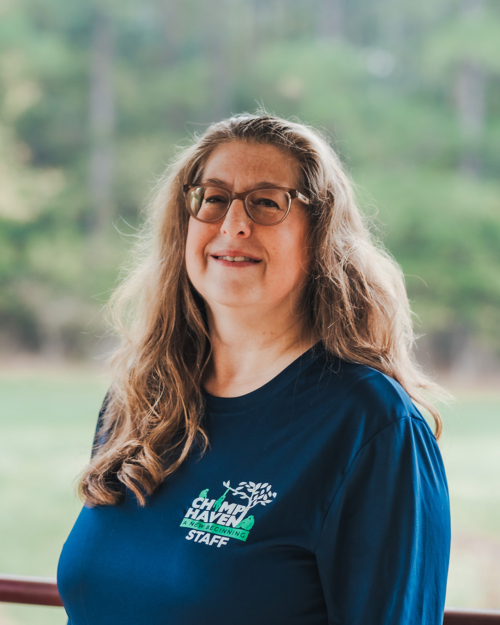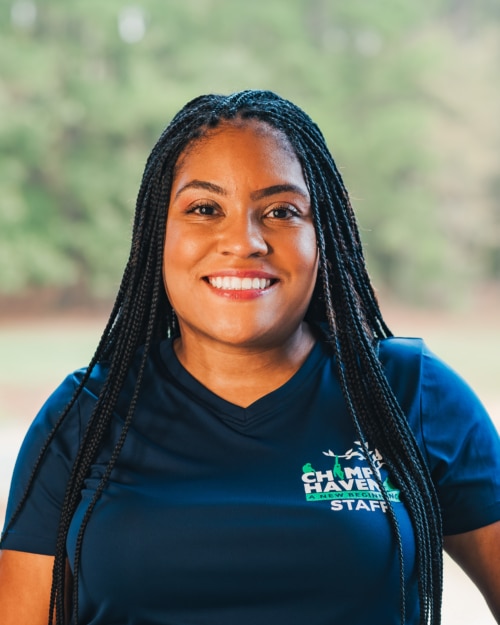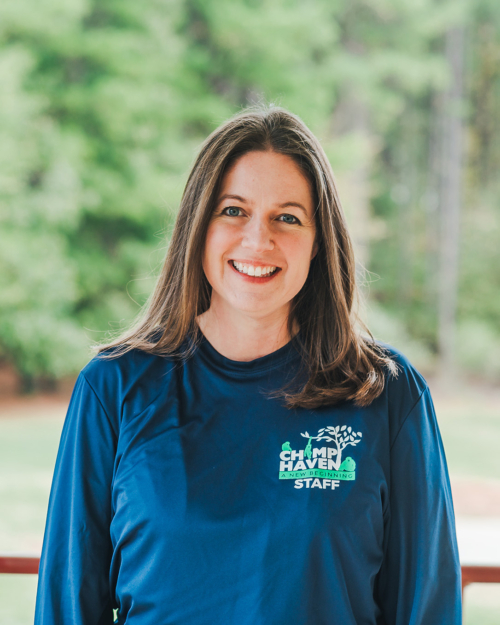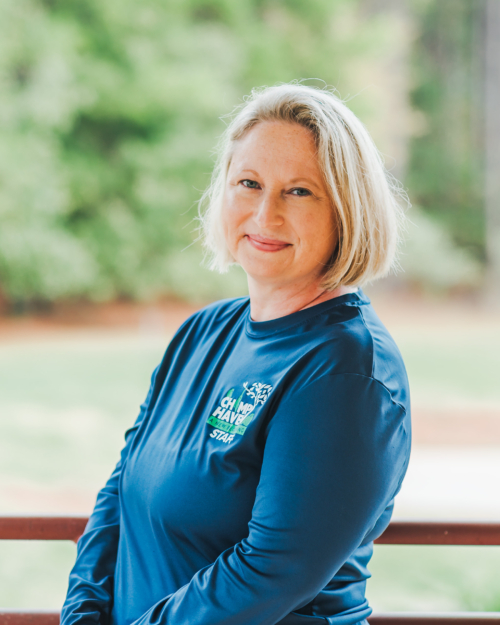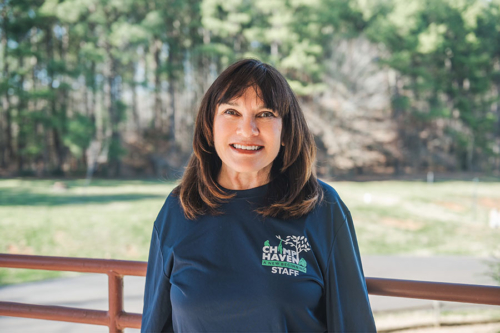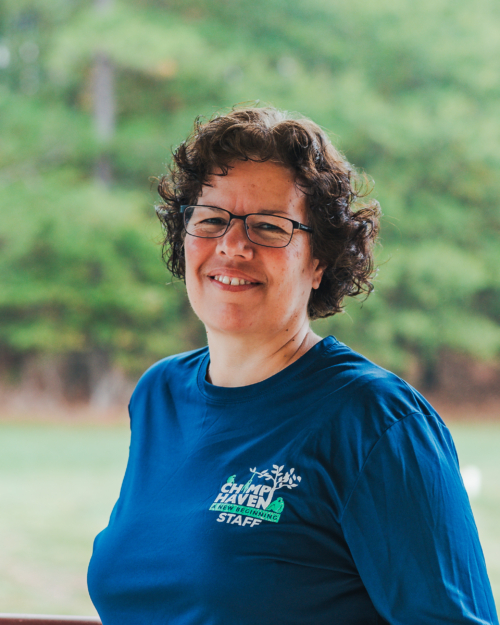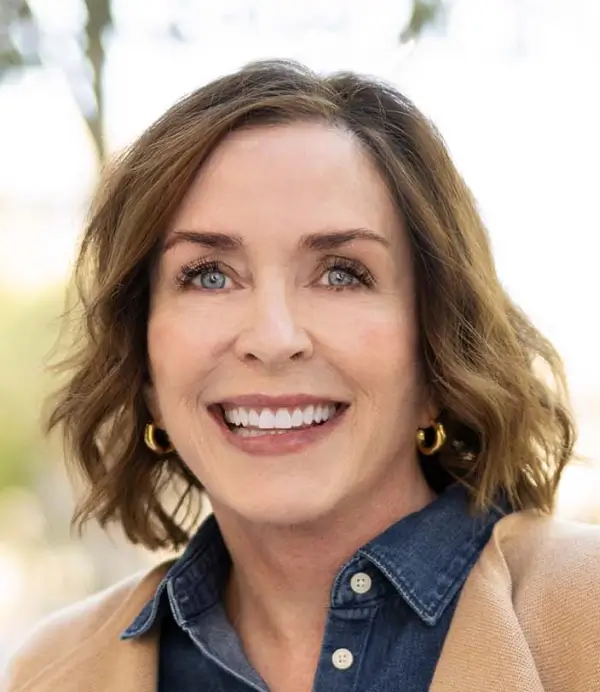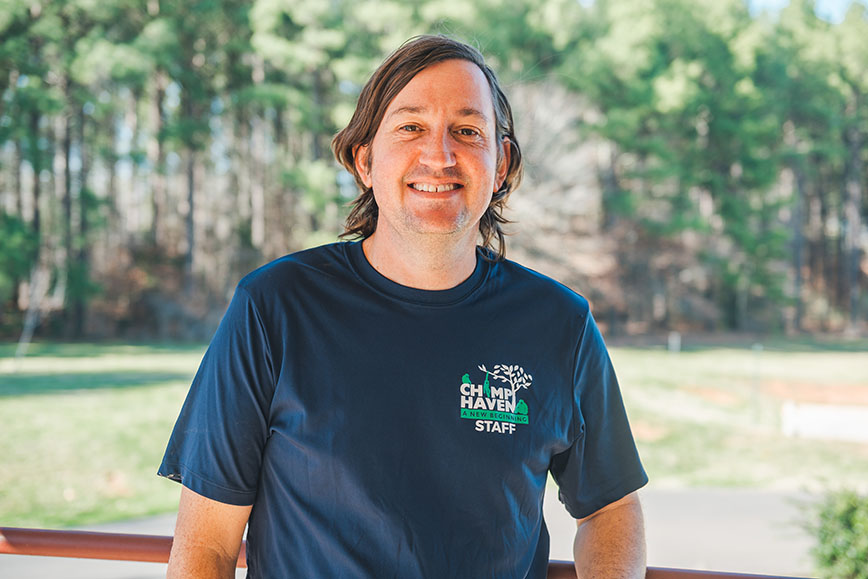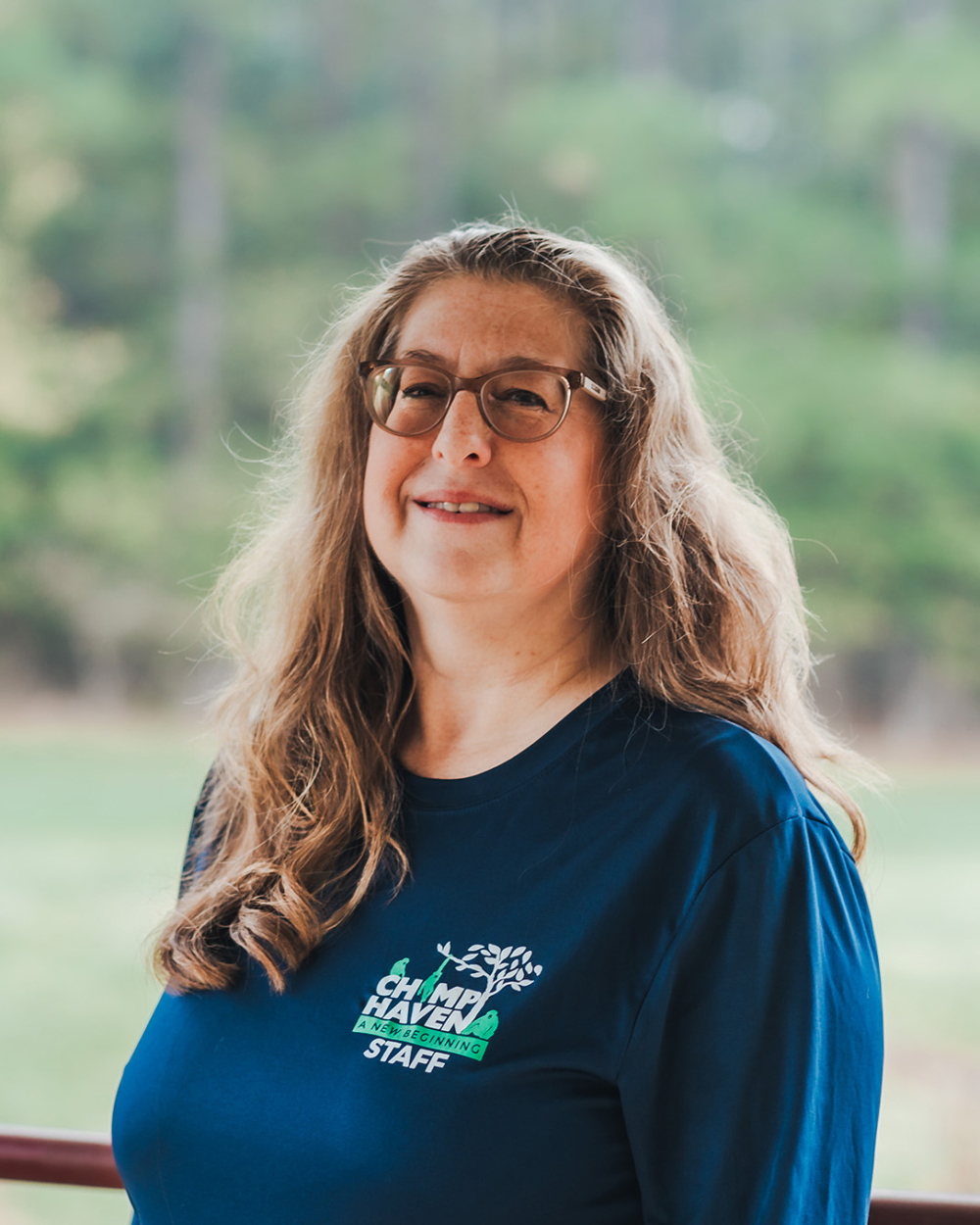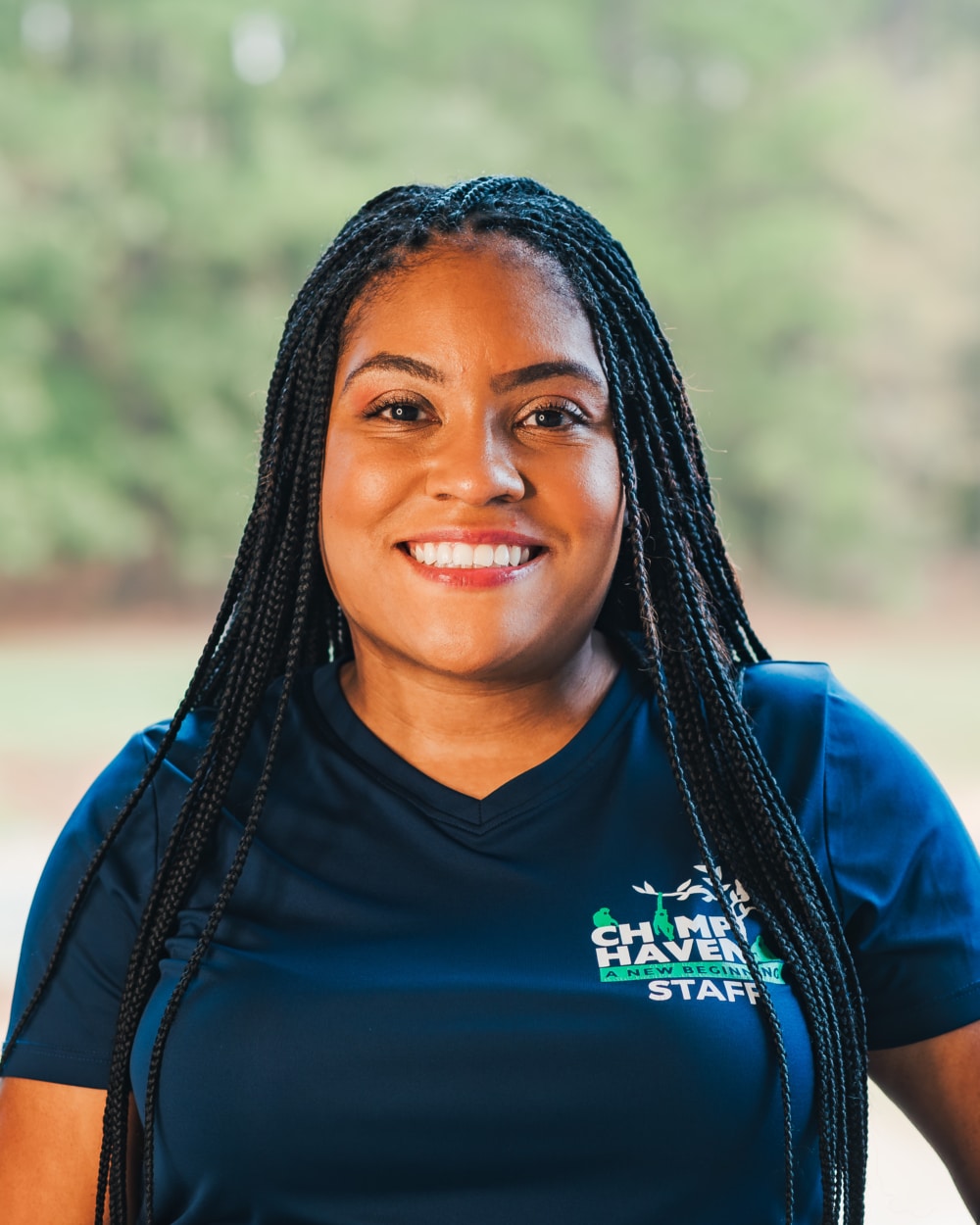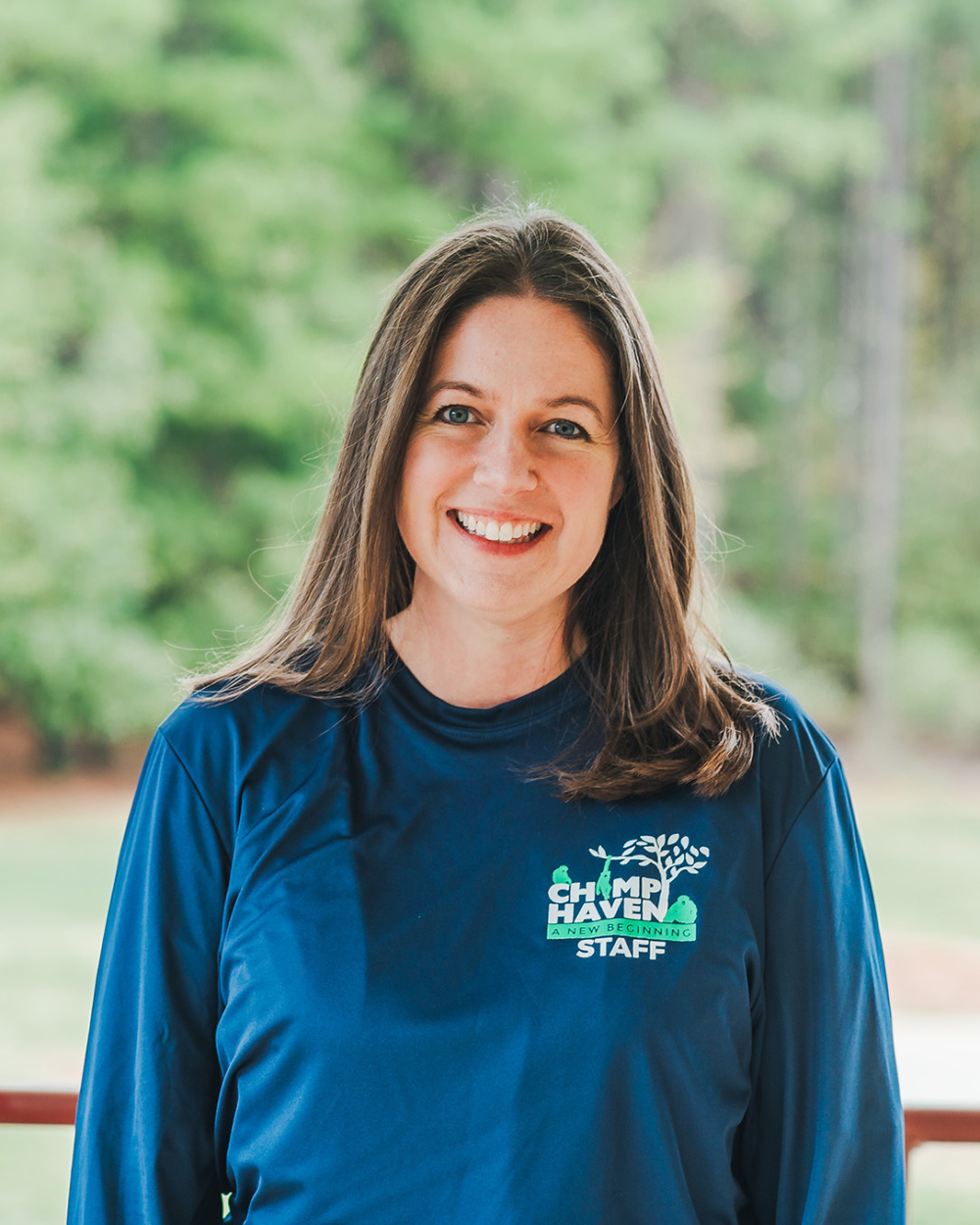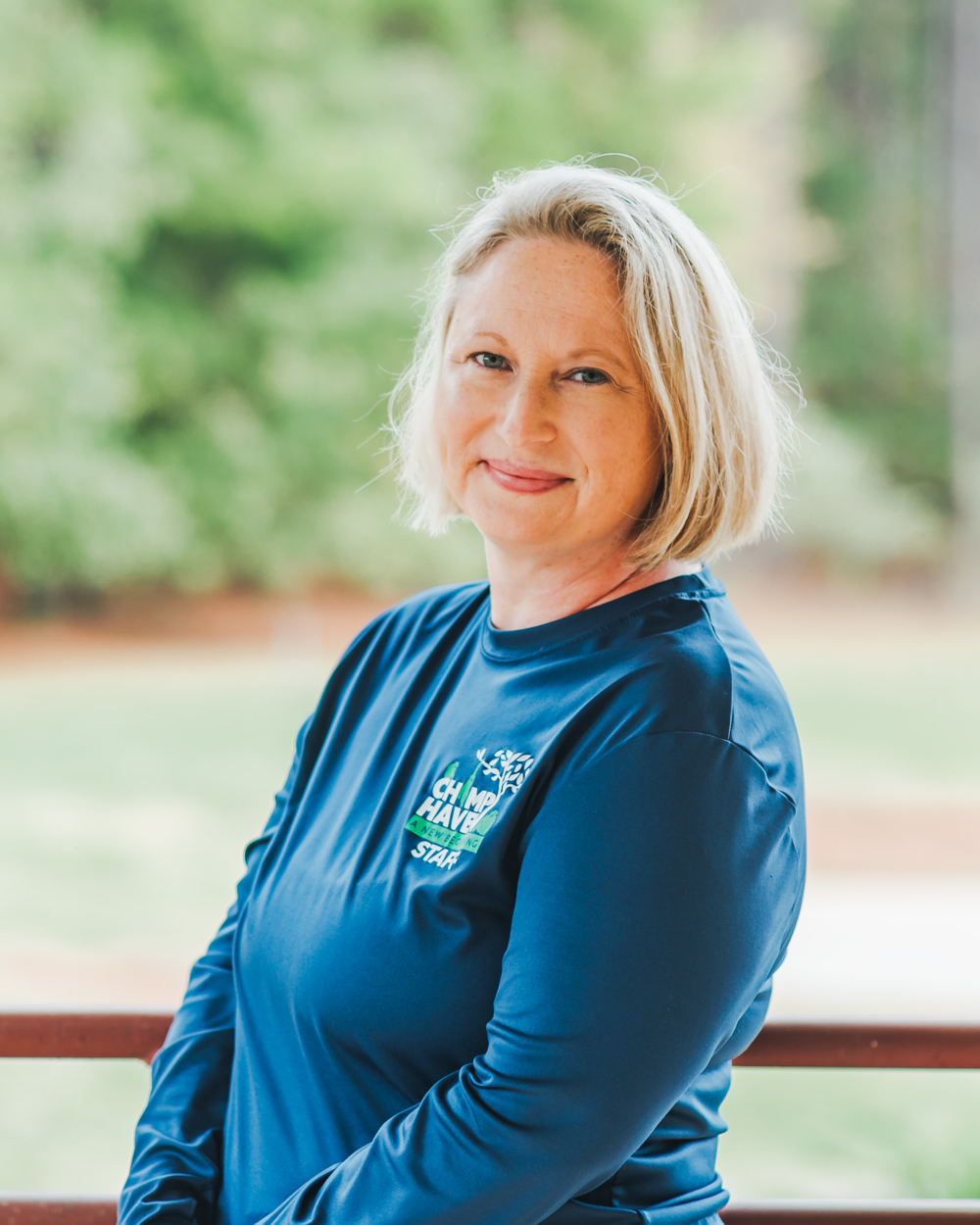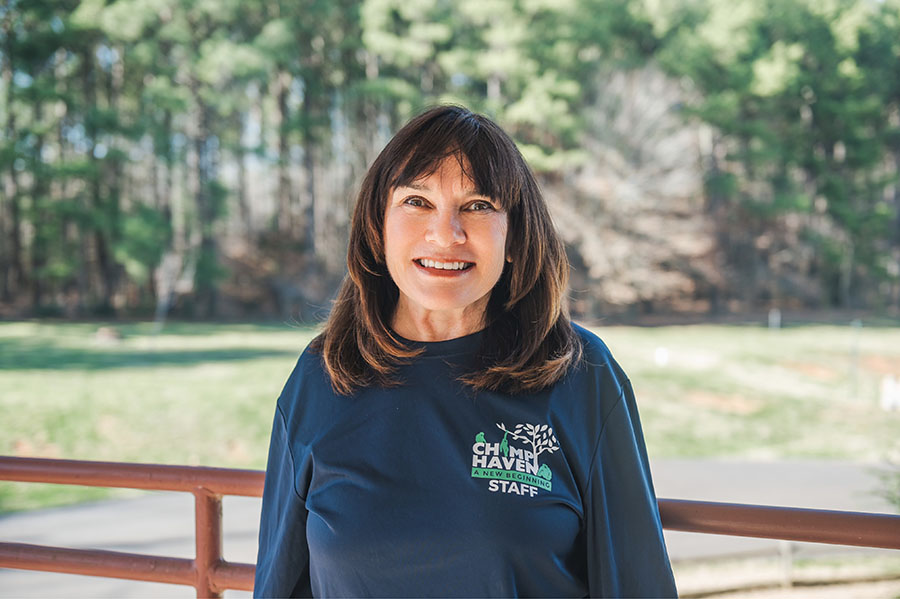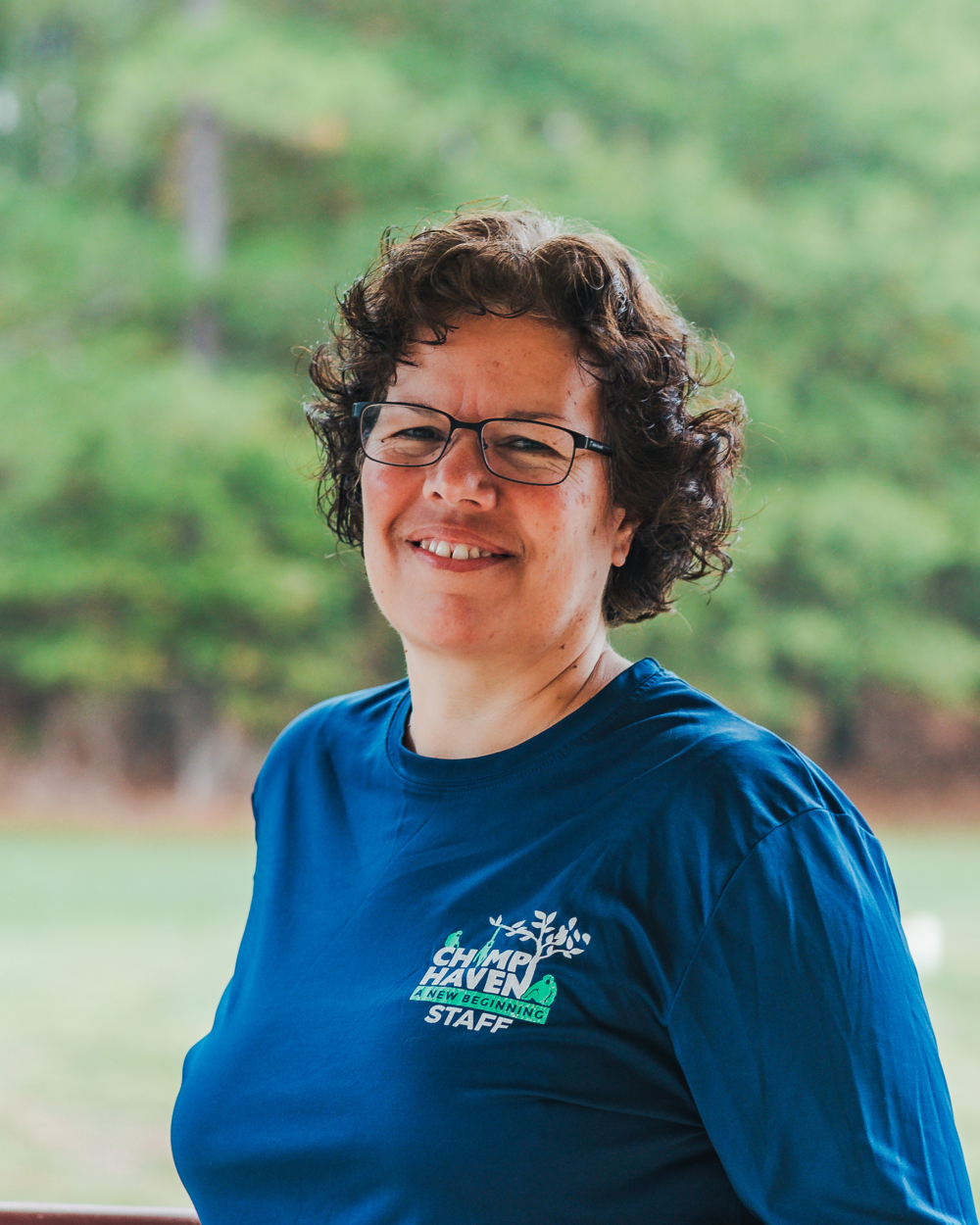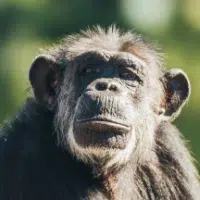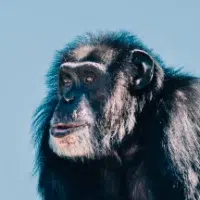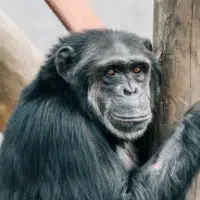We provide and promote the best care of sanctuary chimpanzees and inspire action for the species worldwide.
At Chimp Haven, chimps retired from research get to experience many of the joys they would have in the wild: climbing trees, living in large, bonded social groups, eating their favorite fruits, running, playing, exploring, and — best of all — choosing how they spend their days.
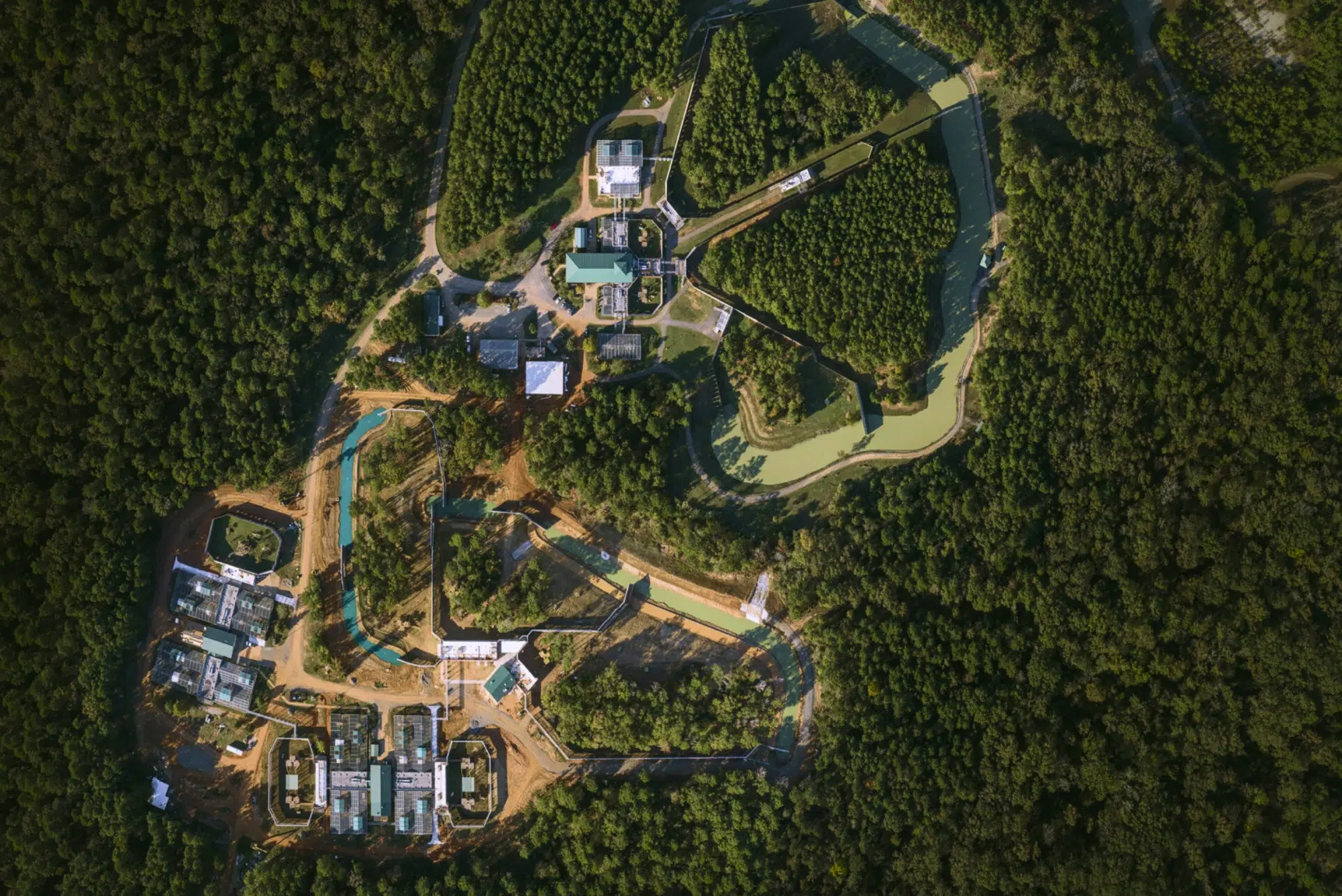
We believe we’re not that different, humans and chimpanzees.
As our closest living relatives, chimps share more than 98 percent of our genetic blueprint, and upon visiting the sanctuary it doesn’t take long to see that they have all the personalities, emotions, relationships, dramas, and joys that we do. We believe they all deserve a chance to live the Chimp Life. On behalf of the more than 300 chimps currently enjoying retirement at Chimp Haven, thank you for your support!
History
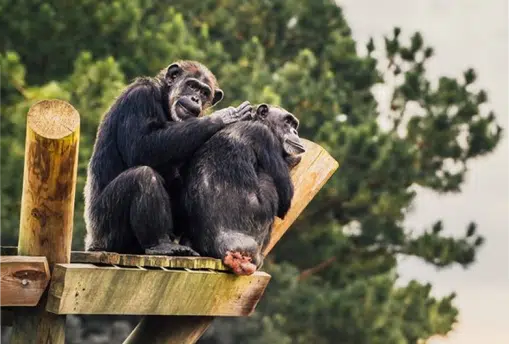
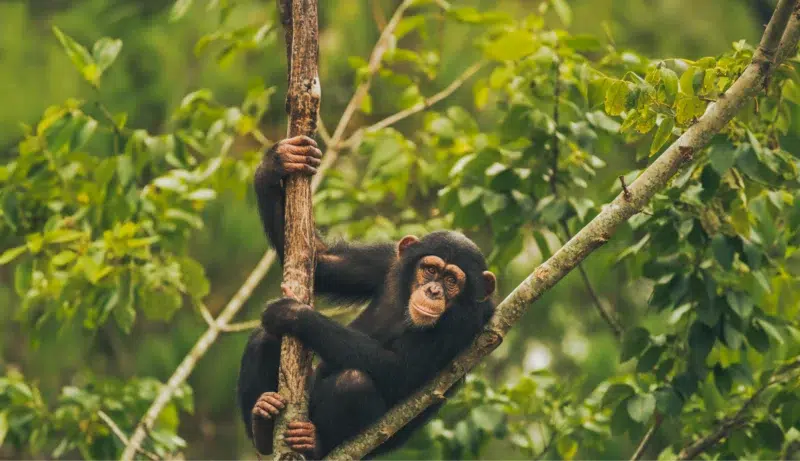
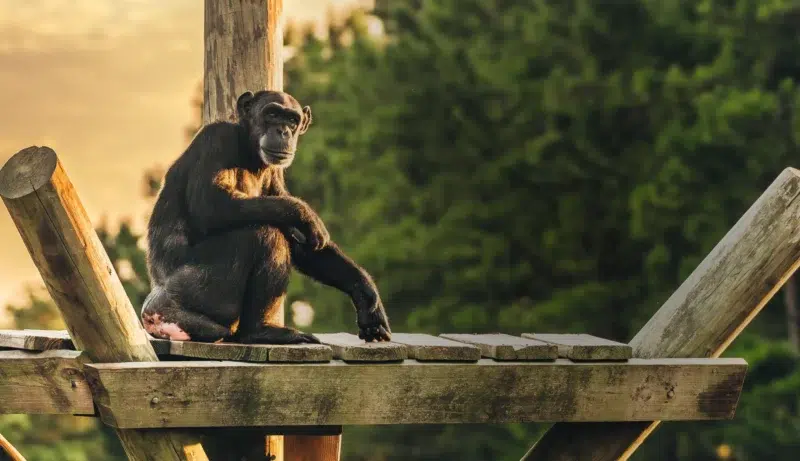
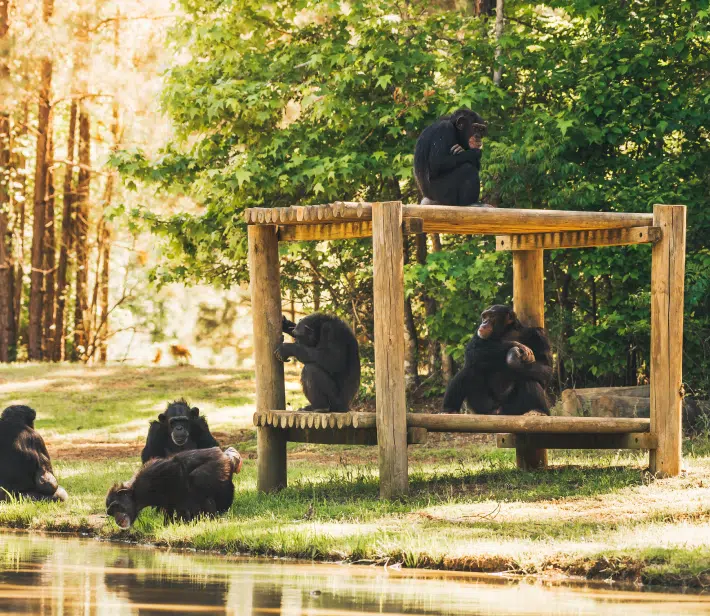
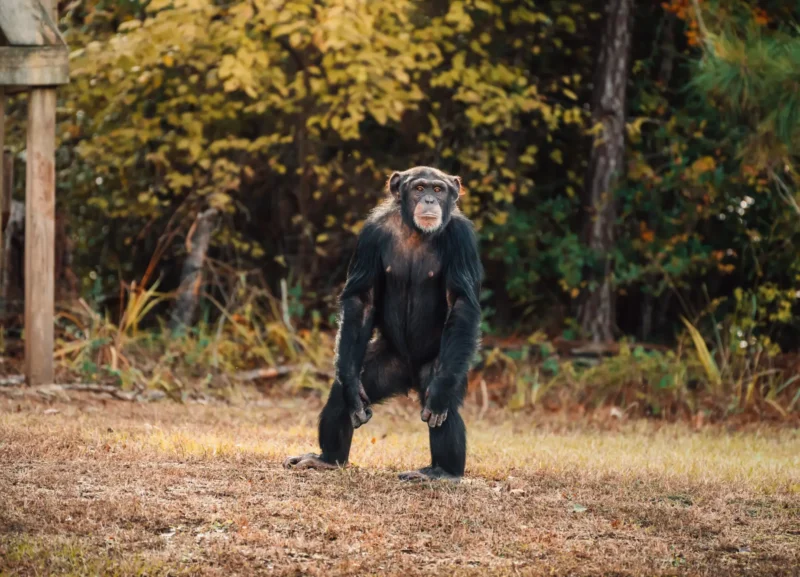
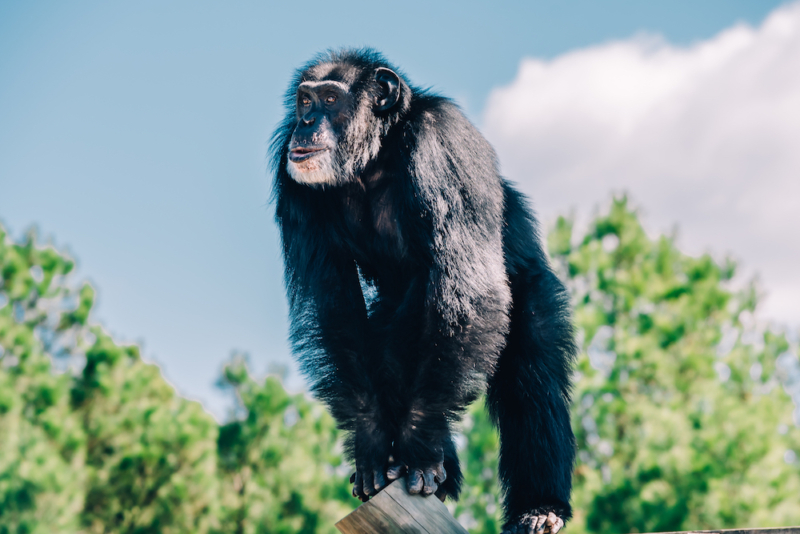
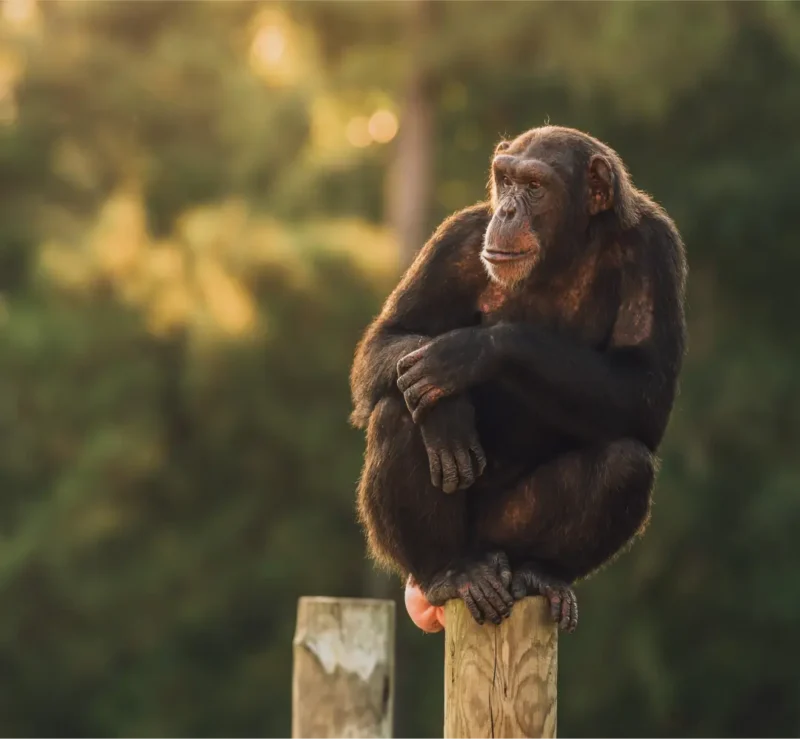
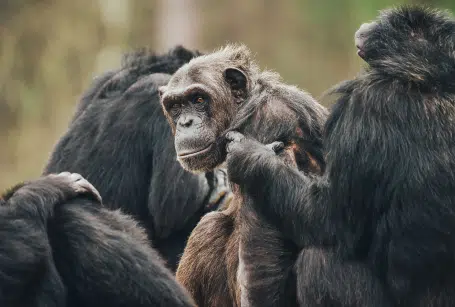
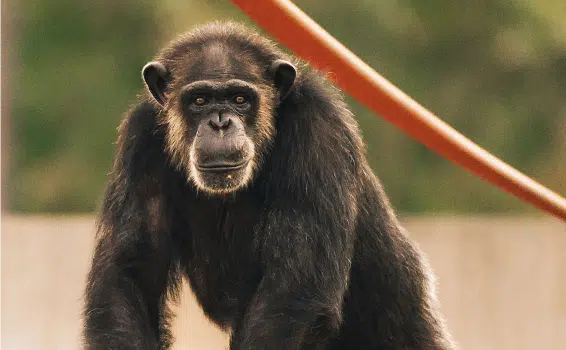
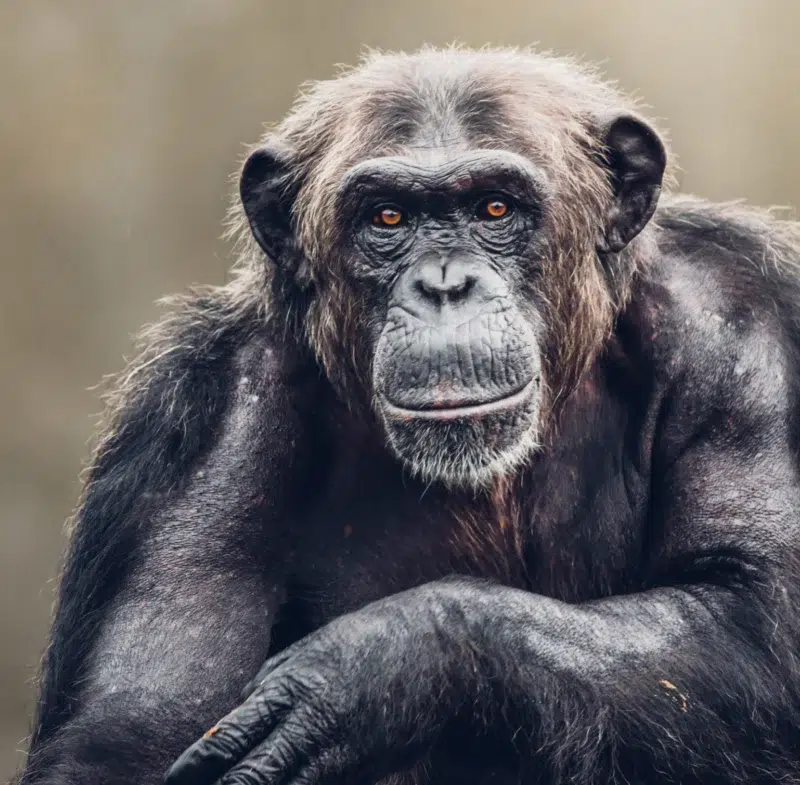
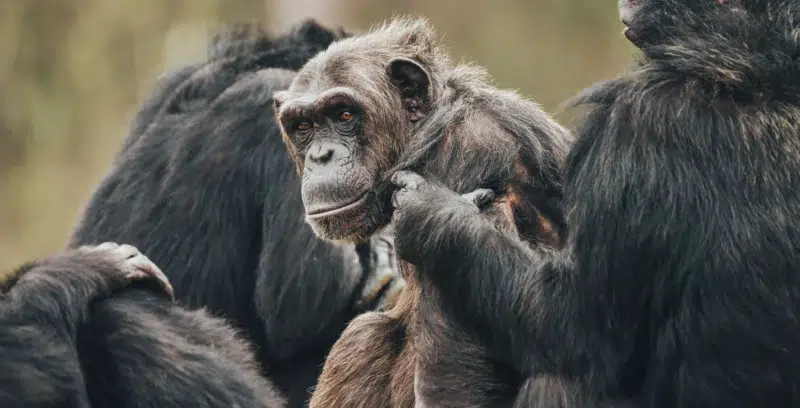


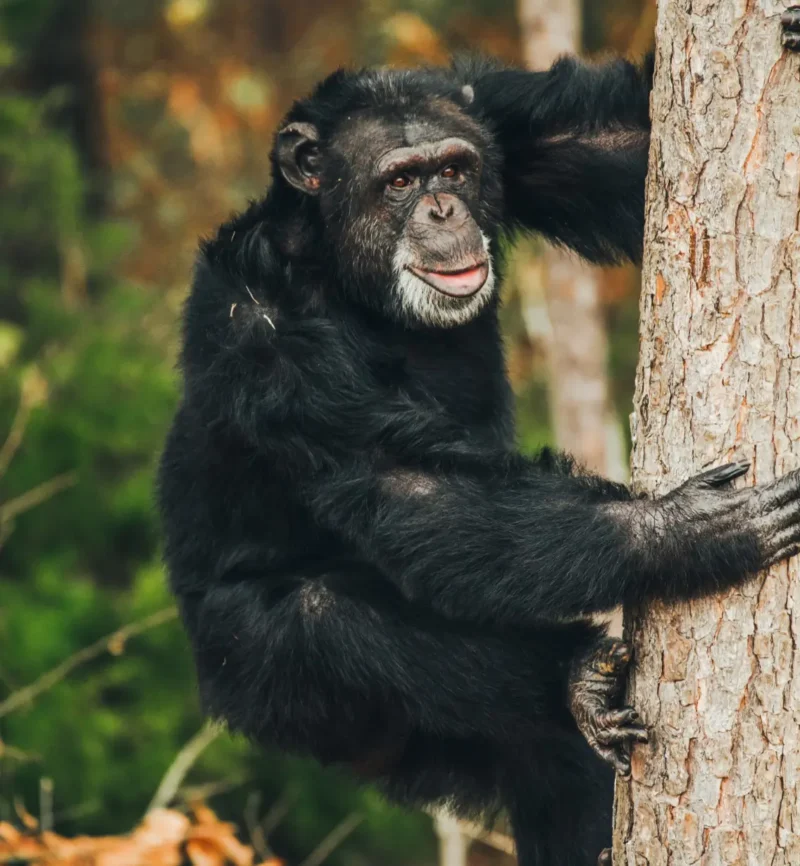
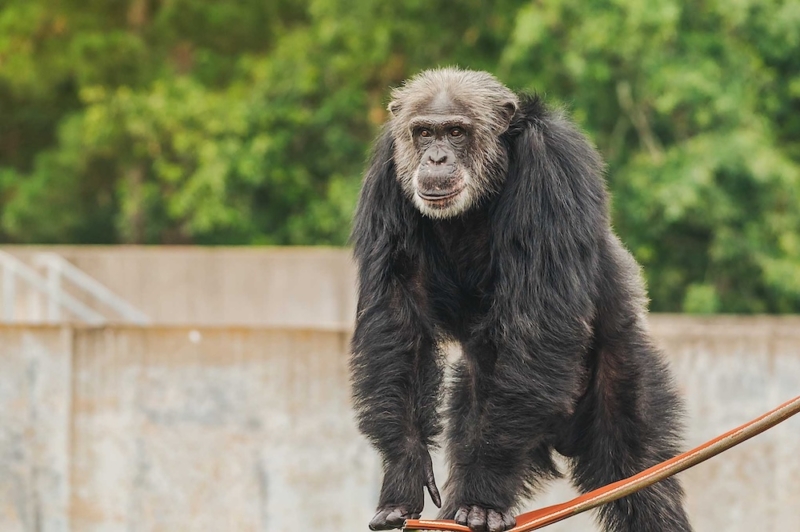
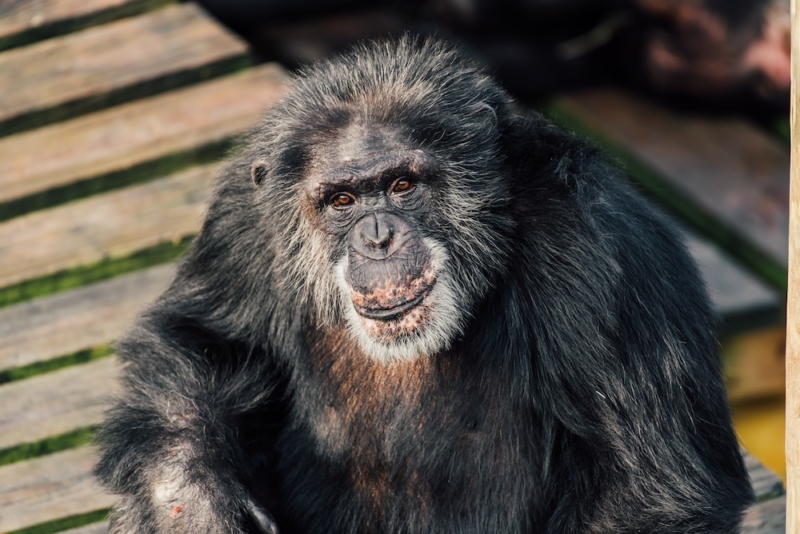
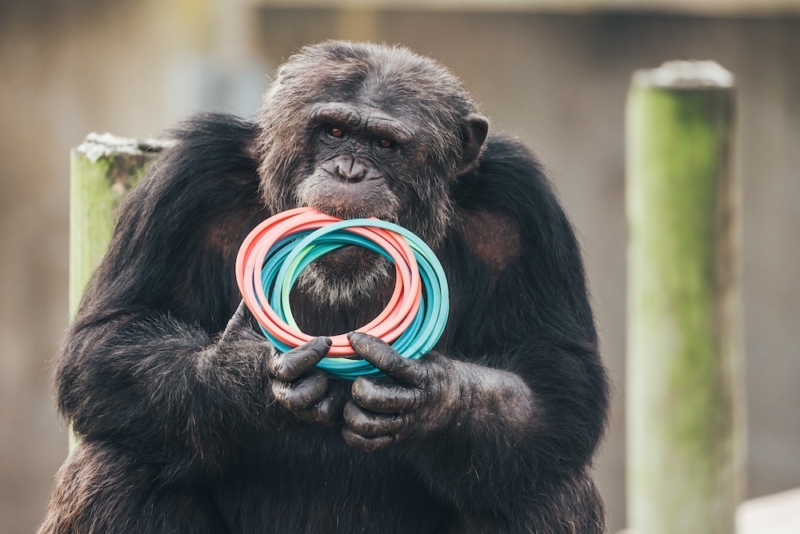
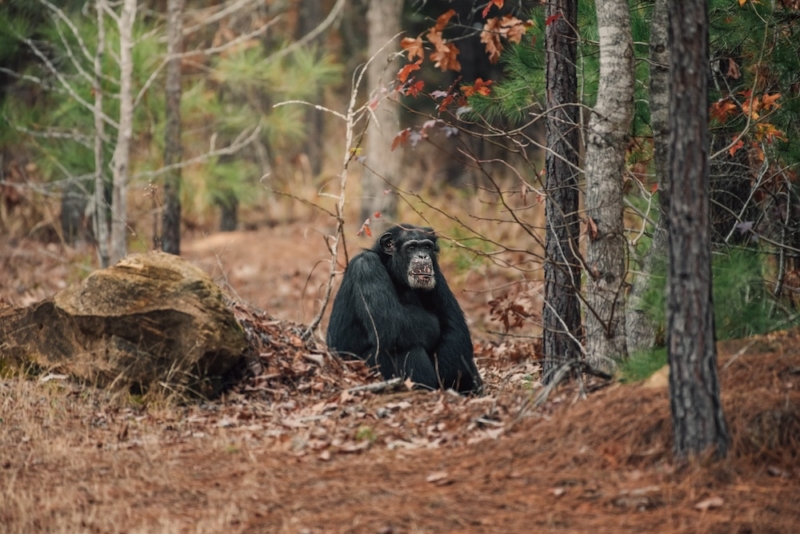
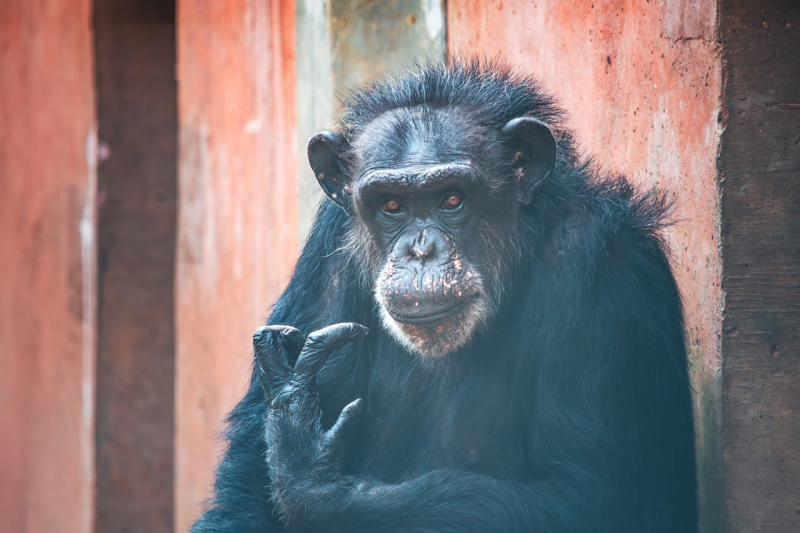
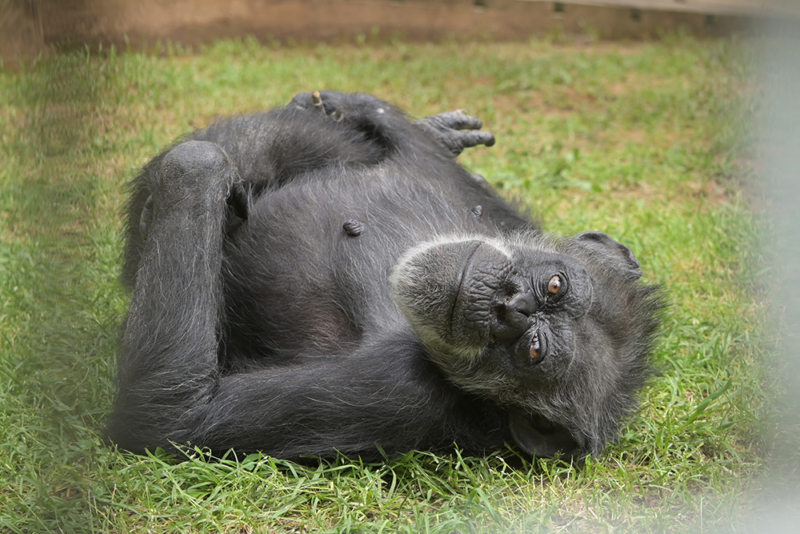
Chimp Haven is founded to meet the need for long-term chimpanzee care for chimps formerly used in biomedical research.
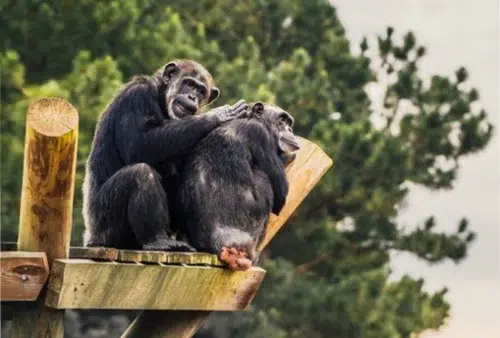
The Chimpanzee Health Improvement Maintenance Protection (CHIMP) Act becomes law, establishing a federal sanctuary system to provide lifetime care for chimpanzees retired from medical research.
Chimp Haven applies and is awarded federal contract to operate as the national chimpanzee sanctuary.
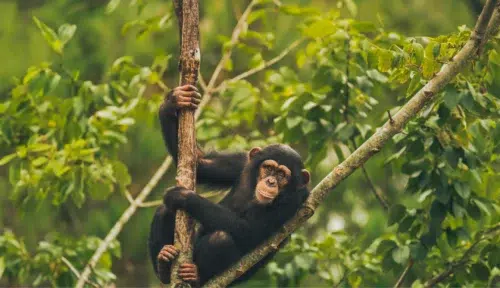
The first two chimpanzees, Rita and Teresa, arrive at Chimp Haven.
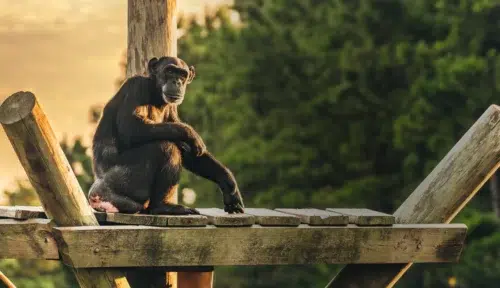
Sixty-one new chimps are welcomed to the sanctuary.
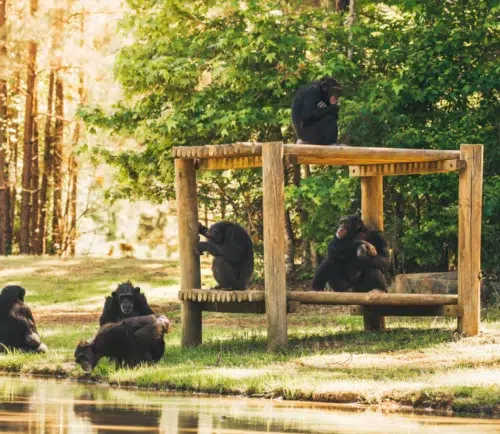
The Chimp Haven is Home Act passes, closing a loophole in the CHIMP Act and prohibiting retired chimpanzees from being returned to research.
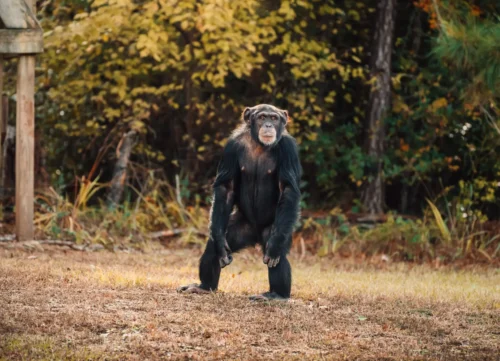
Nineteen new chimps are welcomed to the sanctuary.
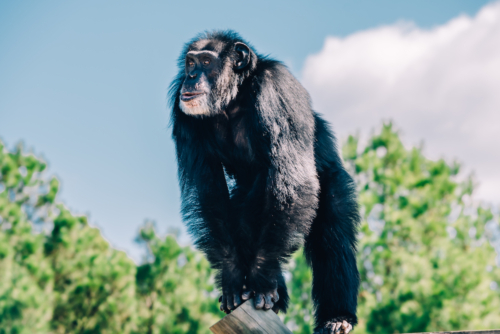
Henry, a chimp found kept as a pet in a garage for 15 years, comes to the sanctuary.
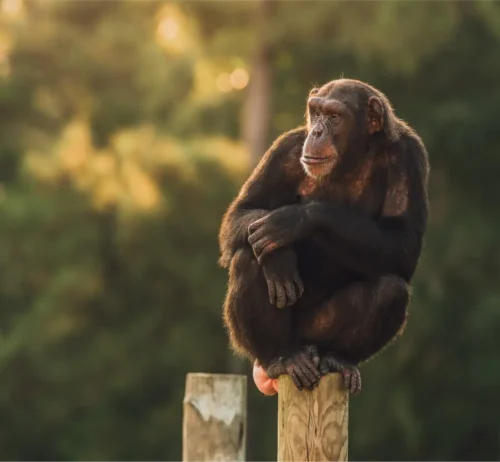
Sixteen new chimps are welcomed to the sanctuary.

Ten new chimps are welcomed to the sanctuary.
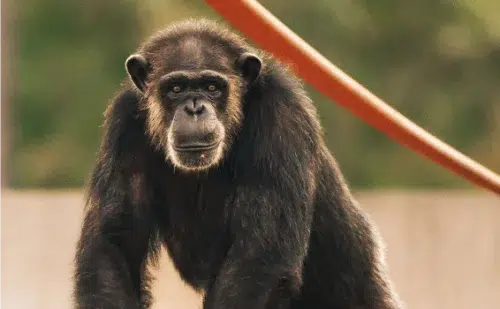
Fifty more chimps move to Chimp Haven from the New Iberia Research Center in Louisiana. By year’s end, a total of 149 chimps are living sanctuary retirement at Chimp Haven.
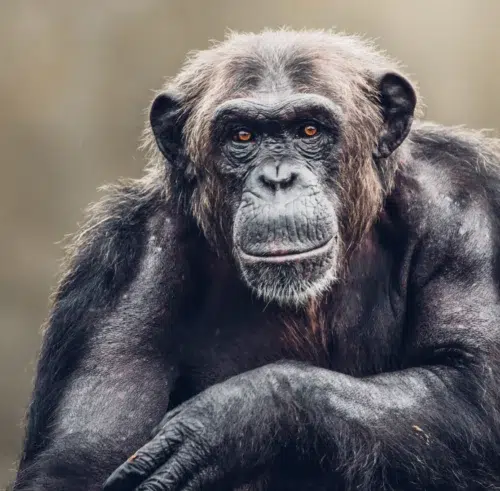
Sixty-five new chimps are welcomed to the sanctuary; a total of 192 chimpanzees now enjoy sanctuary retirement at Chimp Haven.
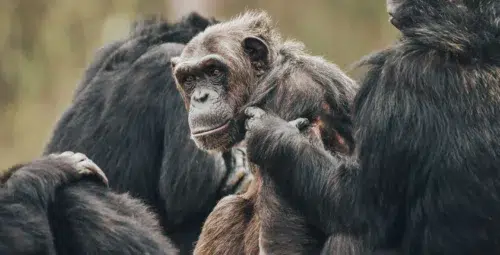
The National Institutes of Health (NIH) ends biomedical research using chimpanzees. U.S. Fish and Wildlife Service lists all chimpanzees as endangered under the Endangered Species Act. Seven more chimpanzees come to live at Chimp Haven.

Twenty-nine chimpanzees move to Chimp Haven to spend their retirement living in sanctuary.

Forty-two chimpanzees move from research facilities to Chimp Haven. Chimp Haven embarks on “Welcome Them Home” Capital Campaign to raise $20 million to build additional forested habitats and expand to create more space for chimpanzees in research facilities awaiting their chance for sanctuary retirement.
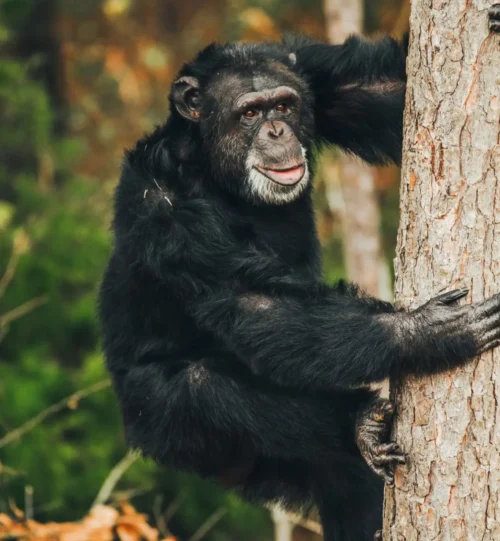
Another 42 chimpanzees move to Chimp Haven from research facilities. With more than 250 chimp retirees, Chimp Haven becomes the world’s largest chimpanzee sanctuary.
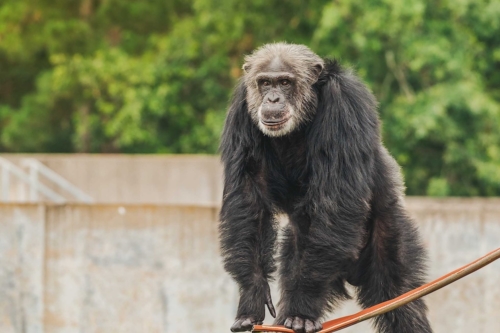
An incredible 46 chimpanzees are transferred to Chimp Haven from research facilities.
Despite the challenges presented by COVID-19, the Chimp Haven team keeps the colony safe and healthy and welcomes 29 new chimp arrivals to sanctuary.
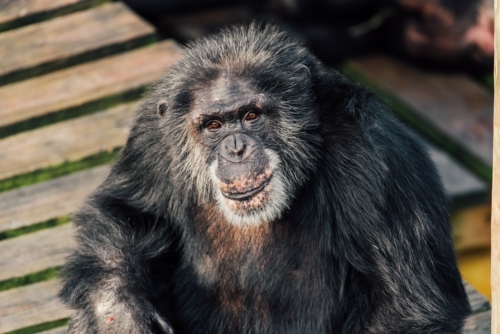
An additional 23 chimpanzees are welcomed to Chimp Haven.
Chimp Haven completes its historic Welcome Them Home expansion, which created space for all eligible chimpanzees to come to sanctuary. Before the year ends, Chimp Haven also welcomes The Treetop Ten from a closed sanctuary in Los Angeles.
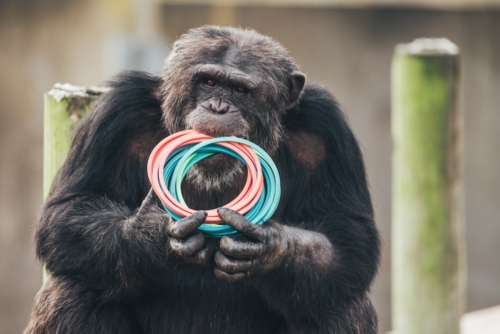
The Treetop Ten enjoy their first year at Chimp Haven, are introduced to new friends, and experience a multi-acre forested habitat for the first time.
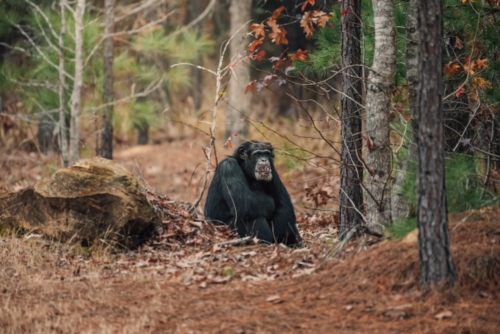
Chimp Haven welcomes three chimpanzees from a research facility in Texas. Penny, Hilde, and Merlin settle into their new life at sanctuary.
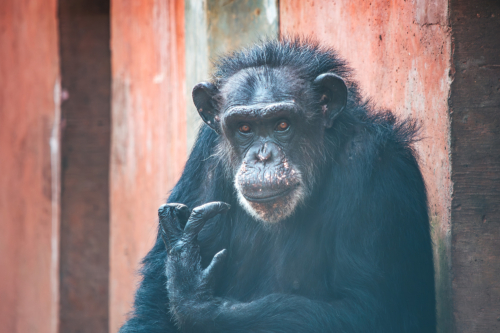
Chimp Haven celebrates its 30th anniversary and welcomes all remaining chimpanzees from the Alamogordo Primate Facility in New Mexico to sanctuary.
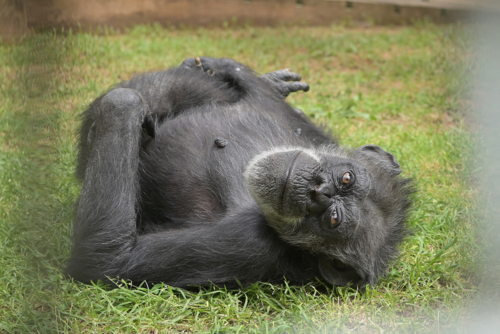
Board & Trustees
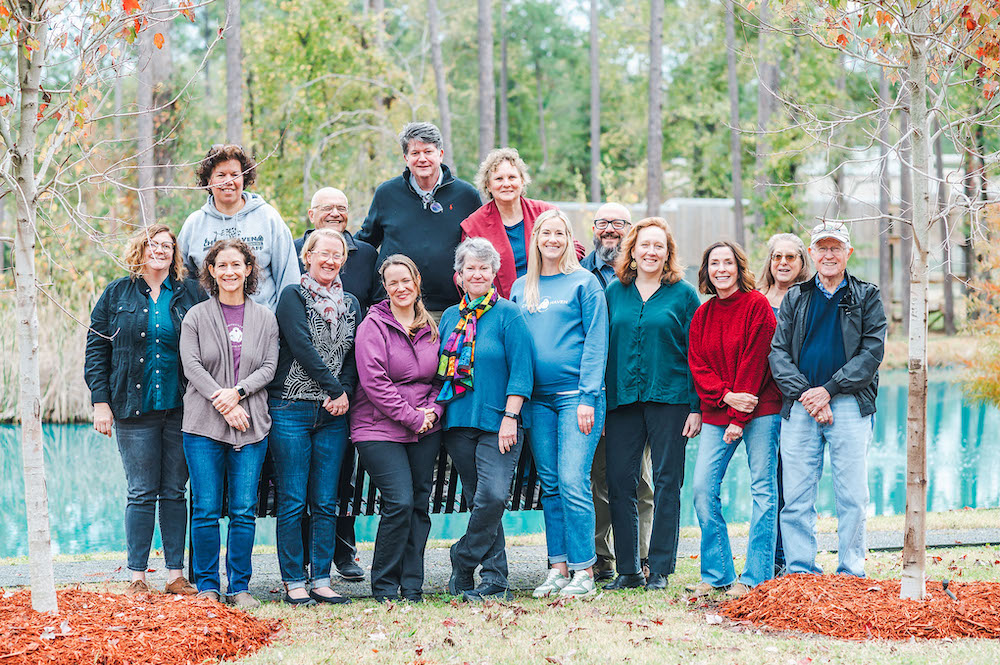
Dr. Leighty has worked with chimpanzees and a variety of other primates for over 20 years. She has a Ph.D. in comparative psychology from the University of Georgia and is the Animal Care Director at Disney’s Animal Kingdom in Orlando, FL. Dr. Leighty has published a number of papers and presented at scientific meetings on primate cognition, behavior and welfare, in addition to related work in other animals including elephants, tigers, and turtles. Dr. Leighty chairs the Research and Technology committee of the Association of Zoos and Aquariums and served on the Executive Council of the International Primatological Society for over 10 years.
With more than 45 years of experience as a veterinarian, Dr. Bielitzki’s love of science and commitment to animal welfare has led his career in a variety of animal-related fields and industries, including work with zoos, wild populations, and primates. He served as one of the first full-time zoo veterinarians in North American before spending more than 20 years directly involved in the care and welfare of primates in research, and in 2022, will retire as Chief Veterinary Officer for NASA. In addition to serving on the Board of Directors for Chimp Haven, Dr. Bielitzki serves as veterinary consultant for the Gorilla Rehabilitation and Conservation Education (GRACE) Center in the Democratic Republic of Congo. He holds a Bachelor of Science, Master of Science, and Doctor of Veterinary Medicine from the University of Illinois, and was the recipient of the Outstanding Leadership Medal from NASA and the Exceptional Civilian Service Medal from The Office of the Secretary of Defense. Dr. Bielitzki is proud to have had the opportunity to help drive U.S. policy on animal welfare and enjoys mentoring and training many young people pursuing careers in animal related fields.
Ms. Dewar is Vice President at Public Communications Inc, a mid-sized independent communications agency in Chicago. She brings more than two decades of public relations expertise to her clients, specializing in destination marketing, science communications, animal conservation and welfare issues, media strategy and training. Prior to joining the agency, Ms. Dewar directed public relations for Chicago’s Lincoln Park Zoo and managed media relations for San Diego Zoo Global. In addition to extensive public relations and media relations experience, Sharon also has great knowledge in strategic and crisis communication, skills she nurtured as a public affairs specialist in the United States Navy.
Dr. Hudson is a consultant and advisor to nonprofits, academia, government, and biotech/tech companies. She previously served as Deputy Director for Science, Outreach, and Policy at the National Institutes of Health (NIH) where she led the science legislation, policy communications, and outreach efforts. Dr. Hudson holds a Ph.D. in Molecular Biology from the University of California at Berkeley, an M.S. in Microbiology from the University of Chicago, and a B.A. in Biology from Carleton College.
Dr. Landi recently retired as the founding Chief Veterinarian of the Office of Animal Welfare, Ethics, Strategy and Risk at GSK Pharmaceuticals. She obtained her veterinary degree from the University of Pennsylvania, has a Master’s in Comparative Medicine, is a Diplomate in the American College of Laboratory Animal Medicine and most recently completed her training in Bioethics from Penn. She has served on the ACLAM Board of Directors and the Institute of Laboratory Animal Research Council. Dr. Landi has received a number of awards and recognitions for her contributions to laboratory animal science and animal welfare, including the Harry Roswell Award from the Scientists Center for Animal Welfare. Dr. Landi served on the Institute of Medicine’s Committee on the Future of Chimpanzees in Biomedical and Behavioral Research, the founding document leading to the end of the use of Chimpanzees in research.
Dr. Lonsdorf is an associate professor in the Department of Anthropology at Emory University. Her research program integrates her interests in health, learning and development in both wild and captive primates. Currently, she works with several collaborators on a long-term health monitoring program for the chimpanzees of Gombe National Park, Tanzania. In addition, she co-manages the largest long-term data set on infant chimpanzee development. Dr. Lonsdorf was the founding Director of the Lester E. Fisher Center for the Study and Conservation of Apes at Lincoln Park Zoo and served as the Vice President for Education and Outreach for the International Primatology Society for eight years. She currently serves on a number of committees for professional primatological organizations, including the Jane Goodall Institute, the American Society of Primatologists, and the Section on Great Apes of the IUCN’s Primate Specialist Group.
Mr. Lyons is a Certified Financial Planner at Ameriprise Financial with more than 16 years of experience and a practice covering 12 states. He is a native of the Shreveport-Bossier City area and has been heavily involved with the local nonprofit and business community since he returned to the area in 2007. In addition to his work with Chimp Haven, he currently serves as the President of the Ark-La-Tex chapter of the Financial Planning Association and as co-Treasurer of the Northwest Louisiana Susan G. Komen affiliate. His work includes retirement and investment planning, and charitable giving strategies.
Ms. Monarch is a Vice President and Commercial Relationship Manager for First Horizon, where she focuses on commercial banking and lending for the north Louisiana region. She brings nearly a decade of experience in accounting and finance to the board, previously serving as a member of the financial institutions team of Ernst & Young, LLP in San Antonio, Texas, and most recently as an Audit Senior with Heard, McElroy, and Vestal, LLC CPA Firm in Shreveport. Monarch graduated Magna Cum Laude from Centenary College of Louisiana with Bachelor’s degrees in Accounting and Finance in 2011 and became a Certified Public Accountant in 2016. Upon obtaining her license she became a member and still maintains her membership with the Louisiana Certified Public Accountants. In addition to her work with Chimp Haven, she serves as the Treasurer on the Executive Council for The Friends of the Algur Meadows Museum and was a member of the Shreveport Chamber of Commerce Leadership Class of 2017.
A native of Keithville, Louisiana, Edward earned his Bachelor’s and Master’s degrees in History and Liberal Arts from Louisiana State University, Shreveport, and his Ph.D. in History from Syracuse University. He specializes in Native American ethnohistory, early American history, and public history. He teaches history at Bossier Parish Community College. Additionally, he serves as the tribal historian for the Rappahannock Indian Tribe in Indian Neck, Virginia. He has extensive experience as a teacher, researcher, and exhibit planner. He is a contributing author on many published volumes and has received numerous research awards and fellowships.
Ms. Miller-Spiegel is a senior policy analyst at the American Anti-Vivisection Society. She received her Bachelor’s in Anthropology from Indiana University of Pennsylvania and a Master’s in Animals and Public Policy from Tufts University Cummings School of Veterinary Medicine. Her professional experience is in animal welfare public policy and advocacy. She has also served as Adjunct Faculty in the Department of Animal Policy and Advocacy at the Humane Society University in Washington, DC. Ms. Miller-Spiegel has published numerous papers, articles and essays in her fields of expertise. She is the co-founder of Down to Earth Farm, an animal sanctuary in Bucks County, PA, and in the past has served as an executive board member for Lulu’s Rescue and completed naturalist training at the Bucks County Audubon Society at Honey Hollow.
Dr. Terio is a Professor at the University of Illinois College of Veterinary Medicine, where she also serves as Chief of the Zoological Pathology Program. She is a Diplomate of the American College of Veterinary Pathologists and has previously served on their Board of Directors. She provides comprehensive pathology diagnostic services to zoological institutions and to local, national and international wildlife agencies and conservation programs. Her research focuses on the impact of disease on wild animal populations, specifically non-domestic cats and non-human primates, including as the lead pathologist for the Great Ape Heart Project. Dr. Terio is an editor of the textbook “Pathology of Wildlife and Zoo Animals.”
Since taking the helm at Chimp Haven in 2017, Rana has overseen the retirement of more than 300 former research chimpanzees, including leadership of the sanctuary’s $20 million expansion campaign, which ensured more than 100 additional chimpanzees were given the opportunity to retire to sanctuary. At Chimp Haven, she leads a highly-engaged, 65-person staff team who provide outstanding personalized care at the world’s largest chimpanzee sanctuary. While serving as Chair of the North American Primate Sanctuary Alliance, she helped lead the effort to raise more than $4 million to rehome 42 chimpanzees at the closed Wildlife Waystation in Los Angeles to qualified sanctuaries throughout the country. Through her work with the chimps, Rana continues a lifelong passion for animals and more than 25 years of nonprofit leadership and fundraising expertise, including roles as National Director of Development and Marketing for the Petco Foundation and Chief Development Officer at Best Friends Animal Society. When she’s not living the chimp life at Chimp Haven, Rana can be found spending time with her family or planning her next travel adventure.
Leadership
Join The Team
As the world’s largest chimpanzee sanctuary, Chimp Haven is committed to providing nearly 300 chimpanzees the good life — or, as we like to call it, the Chimp Life. If that sounds like something worth pant-hooting over, check out our open positions!
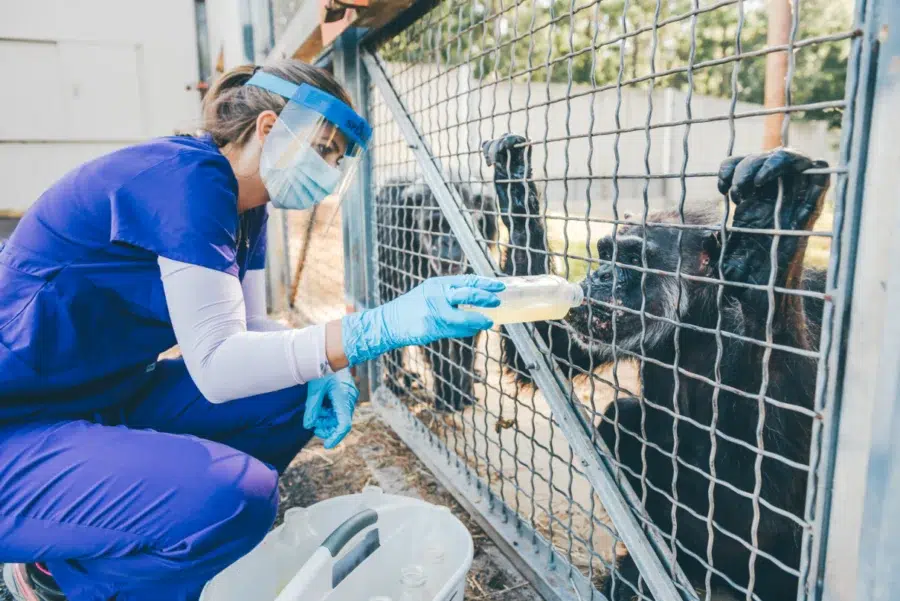
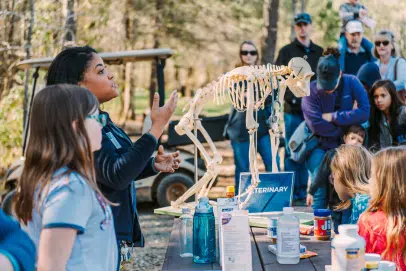
FREQUENTLY ASKED QUESTIONS
Chimp Haven is a private, non-profit sanctuary, the world’s largest chimpanzee sanctuary, and the national chimpanzee sanctuary for all federally-owned chimpanzees retired, primarily, from biomedical research facilities. The sanctuary is a refuge of 200 acres near Shreveport, Louisiana, and currently home to nearly 300 chimpanzees.
Chimpanzees are a lot like us. They are mankind’s closest biological relative, and were once considered a good medical model for research on illnesses and diseases that affect people. When the HIV/AIDS epidemic hit the U.S. in the 1980s, the federal government established breeding centers for chimps across the country and hundreds of chimpanzees were used to try to find a cure. However, in the mid-1990s, scientists discovered chimps were no longer a good model for HIV/AIDS research, which left hundreds of “surplus” chimpanzees in research facilities. Following decades of efforts by animal protection groups, captive chimpanzees were classified as endangered in 2015. The National Institutes of Health responded with the landmark decision to retire all NIH-owned chimpanzees living in research facilities around the country to sanctuary.
Chimp Haven has transported, received and successfully introduced more than 500 chimpanzees, an extraordinary accomplishment given the complex logistics of chimpanzee introduction and sophisticated social dynamics within chimpanzee communities.
No; all the chimpanzees are permanently retired and will live out the rest of their life at Chimp Haven. In 2007, Congress passed the Chimp Haven is Home Act which prohibits their return to research.
The chimpanzees are retired from medical research and no invasive studies are ever conducted at Chimp Haven. The primary goal at Chimp Haven is to ensure each chimpanzee is experiencing the best quality of life and has an enriching retirement at the sanctuary. Our staff conduct behavioral observations of the chimpanzees to monitor their wellbeing and ensure successful social integration. More than 400 chimpanzees have been integrated into social groups at the sanctuary using these methods based on scientific principles and processes.
Chimp Haven is home to chimpanzees with a wide variety of individual health needs and age ranges, many of which arrive at the sanctuary with pre-existing conditions that require long-term care. More than 50 percent of the Chimp Haven colony receive medications to manage conditions such as arthritis and heart, kidney, and liver disease. Chimp Haven’s veterinary staff provides expert medical care to ensure the chimpanzees feel happy, healthy, and comfortable in their retirement years.
Chimp Haven works diligently to prevent chimpanzee pregnancies because our objective is to be a place of retirement for chimpanzees who are currently living in research facilities. Any space that is taken by a new birth replaces the space and resources that could be provided to a chimpanzee awaiting retirement.
Chimp Haven is a private, nonprofit organization that depends significantly on the generosity of individuals to help cover the cost of chimpanzee care. Chimp Haven receives government funding (75 percent) to support the care of federally-owned chimpanzees, and must raise the remaining 25 percent of funds for the chimpanzees’ care through private support. Additionally, Chimp Haven does not receive any government funding to improve, expand, or add more chimpanzee habitats or veterinary suites to provide care for additional chimpanzees awaiting retirement. Without the generous support from individuals, corporations, foundations, and organizations, Chimp Haven could not provide the chimpanzees with the retirement they deserve.
It costs about $25,000 per chimpanzee annually to provide care at sanctuary. This includes their food, medical care, enrichment, and all of the basic necessities for these extraordinary individuals.
Sanctuary provides chimpanzees with the opportunity to experience life in a natural environment, free from experiences of the past. Choice is a key ingredient of sanctuary life, with ample space for the chimps to play, climb, and explore in an environment similar to what they would experience in the wild. Chimp Haven is specifically designed to offer long-term, personalized care to the aging chimpanzee population for the remainder of their lives, ensuring all retirees have access to things that make them happy and healthy such as good food, behavioral enrichment, nesting materials, and friends. We believe sanctuary is the optimal place for chimpanzees retired from biomedical research, and we’re on a mission to bring them home for the peaceful, enriching life they deserve.

